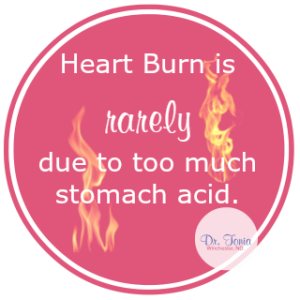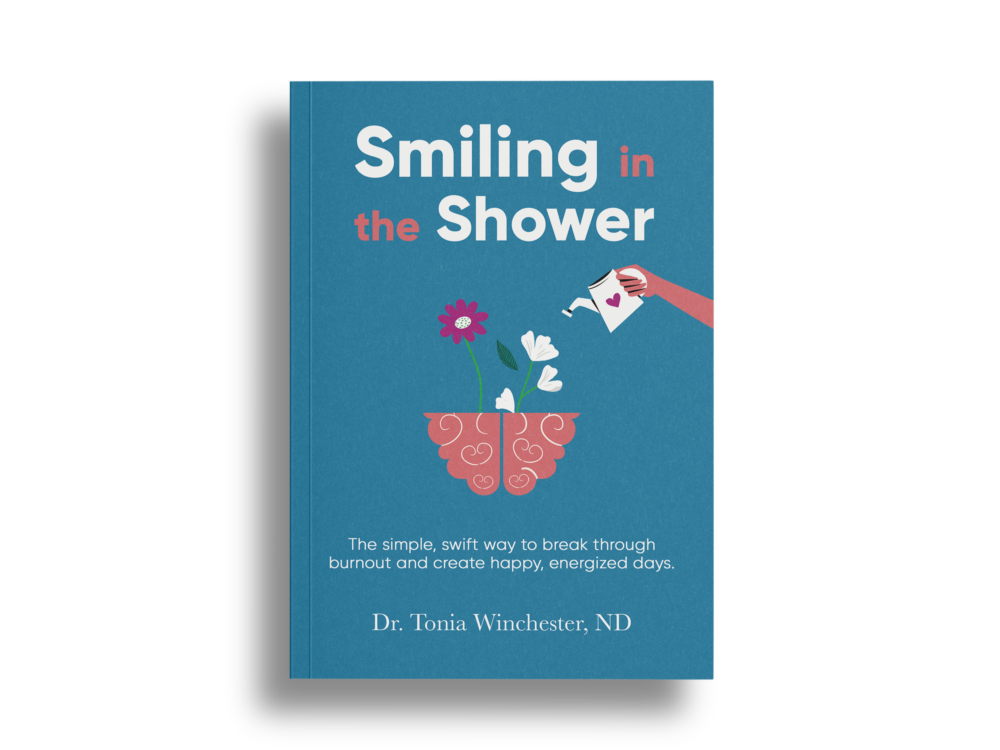 A patient recently told me that her doctor, after prescribing a double dose of Nexium, said there is a connection between stress and stomach acid – and there definitely is one, but it’s actually not what you think, or what medical doctors believe and understand.
A patient recently told me that her doctor, after prescribing a double dose of Nexium, said there is a connection between stress and stomach acid – and there definitely is one, but it’s actually not what you think, or what medical doctors believe and understand.
They typically say that stress causes an increase in stomach acid leading to an erosion of the mucosal tissue causing ulcers in the stomach and upper part of the small intestine.
This is absolutely physiologically incorrect.
Here’s the low down on how stress affects stomach acid:
Stomach acid GOES down with stress.
Lets repeat.
Stomach acid GOES DOWN WITH STRESS.
Stress diverts blood away from the gut to feed the muscles and the brain so the body can run away or fight to survive the threat. Digestion is not an essential function when it comes down to acute survival. The body prioritizes the threat / stress by sending it’s blood flow and resources to the organs and tissues which help the body survive.
In fact, the secretion of ALL the digestive enzymes and juices decreases with stress.
Stomach acid (HCl) is one of the signals that closes the sphincter between the esophagus and the stomach. In medical gobbledee gook lingo we call this the lower esophageal sphincter (LES). When the LES is closed, digestion typically functions well, and we don’t see problems such as indigestion, acid reflux, or heart burn.
Lets review:
Stress leads to decreased blood flow to digestive system including the stomach…
which leads too lower HCl…
which impedes the signal to close the LES…
so the stomach stays open…
and what little acid is in the stomach comes up and irritates the esophagus causing heart burn, reflux and indigestion.
That’s the real story about stress and stomach acid. Wait there’s more.
With stress there is also less protective mucus production so the acid that IS in the stomach can injure the fragile lining of the gut, furthering the digestive distress and inflammation, causing ulcers, poor nutrient absorption, and ultimately weight gain.
MDs provide acid blockers to relieve heart burn, just like the extra this doc prescribed to this patient.
Here’s what happens when we take medications such as Nexium:
Proton pump inhibitors purposefully lower stomach acid…
which decreases the ability of our digestive system to properly digest our food (we need HCl to break down proteins, help us absorb certain nutrients, and kill organisms that may be sneakily hanging out in our hotdogs…
leading to poor digestion…
impairing nutrient absorption…
and causing irritation and inflammation in the gut.
This causes increased reactivity to foods, and increased weight. When I work with my patients so much of what we’re doing is working to heal and repair digestive function.
There is an old naturopathic adage:
A healthy gut means a healthy body.
More drugs is not the answer. Doubling the dose will not lead to healing, but further problems.
Decreasing stress through deep breathing, meditation, yoga, and saying, “No!” to too many commitments, eliminating reactive foods (which are just a different type of stress to the body) are the ways to decrease the inflammation to allow the gut to heal.
And subsequently the body heal, happily.
In certain instances I would support the digestion with certain mucilaginous herbs such as slippery elm, marshmallow and deglycinerized licorice to sooth and protect the mucus membranes in the stomach. I might also recommend bitter herbs to help the body produce it’s own digestive juices – including stomach acid – to support proper food digestion.










I recall, perhaps incorrectly(?), that stomach acid triggers some hormone in the intestine to trigger production of red blood cells. Is this correct? Also a question- I permitted my gallbladder to be removed- a stupid mistake- …. Any suggestions or diet adjustments to compensate…. as there are no stores of bile for digestion etc…. Thanks